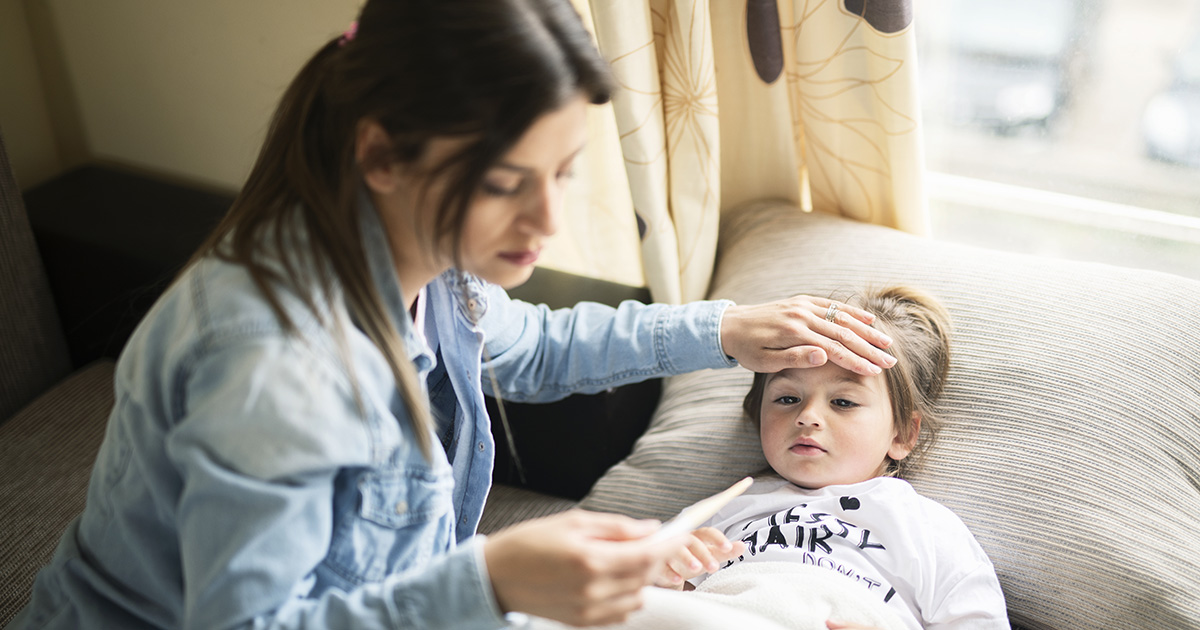Why are RSV cases rising? 8 RSV symptoms and when to get help

This year we’ve experienced a significant surge in respiratory illnesses in children across the United States. In Nebraska, cases of respiratory syncytial virus, or RSV, began spiking in mid-September. By October, RSV cases had reached 292 positive tests per week, peaking at 399 positive near the end of the month. Cases are still at peak levels in Nebraska and will likely remain high throughout the winter.
“Typically, all kids are exposed to RSV by the age of two,” explains infectious diseases expert Carlos Gomez, MD. “However in 2020 and 2021, COVID-19 prevention measures – like wearing masks and social distancing – meant that infants and young children weren’t exposed to these respiratory illnesses. Now, these children are back in normal daycare and social settings without having built prior immunity to RSV. This is why we’re likely seeing so many cases this year.”
What is the RSV virus, and is it dangerous?
RSV is a common respiratory virus that targets the respiratory tract. This includes upper airways (common cold or laryngitis) or lower respiratory tract (pneumonia or bronchiolitis).
RSV is a seasonal virus, like influenza, with most cases in the U.S. occurring between late fall and early spring.
RSV is very contagious and spreads through droplets released when you cough and sneeze. Droplets can stay alive on surfaces like doorknobs, cellphones and hands. They infect you when you touch your face before washing your hands. People infected with RSV are usually contagious for three to eight days. You can be contagious one to two days before the onset of symptoms.
“For most kids, RSV presents with mild cold symptoms like a cough, runny nose and sometimes fever,” says Dr. Gomez. “Some cases can turn severe. Premature infants under 6 months of age and those with heart or lung conditions or weakened immune systems are at higher risk of developing severe RSV infections.”
The RSV virus can be dangerous for adults, too. Especially those 65 years and older.
“To protect vulnerable groups, it’s important to cover your cough, wash your hands frequently, and clean and sanitize frequently touched surfaces,” says Dr. Gomez. “You should also stay home when sick and avoid visiting anyone at high risk, such as grandparents with predisposing conditions.”
RSV symptoms
Most healthy children and adults who get RSV will experience mild, cold-like symptoms. Most people recover in about a week.
When RSV infects small airways, stridor or wheezing – which sounds like a whistle or rattle when your child breathes – is common.
Other symptoms of RSV include:
- Wet-sounding, lower respiratory cough
- Fever
- Runny nose
- Lack of appetite
- Irritability and inactivity, especially in infants
- Difficulty breathing
- Retractions, skin contracting between ribs when breathing
- Pauses in breathing (apnea)
RSV can lead to severe illnesses such as:
- Bronchiolitis, swelling of the small airways in your lungs
- Pneumonia, an infection of your lungs
- Exacerbation of chronic illnesses like asthma or COPD
How do you know if you have RSV?
As with any respiratory infection, you can’t tell the difference between RSV symptoms and other respiratory viruses like flu, COVID-19 or those responsible for the common cold.
“To find out if you have RSV, a health care provider must do a test,” says Dr. Gomez. “The tests are similar to those used to rule out COVID-19. You can be tested for multiple viruses, such as RSV, flu and COVID-19, in a single sample.”
How to treat RSV at home and when to see a doctor
Mild RSV symptoms often respond well to at-home treatments, including:
- Taking a fever reducer, such as acetaminophen or ibuprofen
- Ibuprofen should not be given to infants younger than 6 months
- Drinking clear fluids to prevent dehydration
- Keeping the environment humid with a vaporizer or cool-mist humidifier
- Using nasal saline spray or gentle nasal suction
Call your pediatrician or seek emergency care (call 911) if your child has any of the following symptoms:
- Noisy breathing or wheezing
- Flaring of nostrils while breathing
- Blue or gray color to their lips, mouth and fingernails
- Belly breathing or caving in of the chest with expansion of the belly when breathing
- Short, shallow or rapid breathing
- Pauses while breathing (apnea)
Children hospitalized for severe RSV infections may receive supplemental oxygen and IV fluids. Sometimes they’ll need a machine to help them breathe. Most patients improve quickly with this supportive care and can go home in a few days.
Adults over age 65 are at greater risk of severe complications from RSV because the immune system weakens with age. Call your health care provider or 911 if you have difficulty breathing.
What medications or vaccines are available for RSV?
“While antivirals exist to treat influenza and COVID-19, there are currently none for RSV,” says Dr. Gomez. “If you or a family member are at high risk of a severe RSV infection, it’s important to let people know not to visit your home if they’re having symptoms of any respiratory illness.”
Palivizumab is a drug approved to prevent severe RSV in infants and children at high risk for complications. However, it doesn’t cure RSV and isn’t used to treat children who already have RSV.
There’s no vaccine to prevent RSV infection yet. However, scientists are working hard to develop one.
University of Nebraska Medical Center researchers are looking for adults 65 years and older for a clinical trial of a new RSV vaccine named MVA-BN®-RSV. If you’d like to participate, please contact the research team via email or call 402.836.9265.




